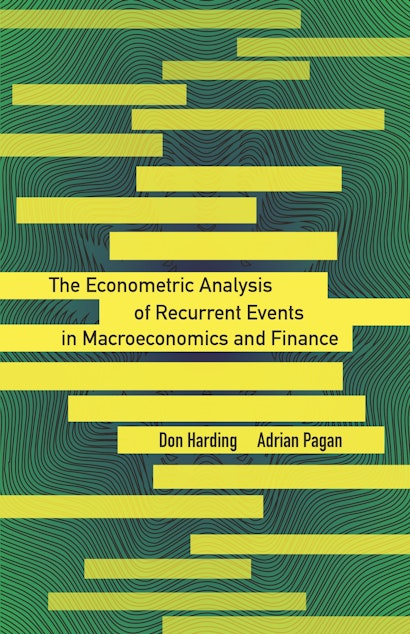The global financial crisis highlighted the impact on macroeconomic outcomes of recurrent events like business and financial cycles, highs and lows in volatility, and crashes and recessions. At the most basic level, such recurrent events can be summarized using binary indicators showing if the event will occur or not. These indicators are constructed either directly from data or indirectly through models. Because they are constructed, they have different properties than those arising in microeconometrics, and how one is to use them depends a lot on the method of construction.
This book presents the econometric methods necessary for the successful modeling of recurrent events, providing valuable insights for policymakers, empirical researchers, and theorists. It explains why it is inherently difficult to forecast the onset of a recession in a way that provides useful guidance for active stabilization policy, with the consequence that policymakers should place more emphasis on making the economy robust to recessions. The book offers a range of econometric tools and techniques that researchers can use to measure recurrent events, summarize their properties, and evaluate how effectively economic and statistical models capture them. These methods also offer insights for developing models that are consistent with observed financial and real cycles.
This book is an essential resource for students, academics, and researchers at central banks and institutions such as the International Monetary Fund.
Don Harding is professorial research fellow at the Centre of Policy Studies (CoPS) at Victoria University and honorary professor of economics at La Trobe University. Adrian Pagan is professor emeritus of economics at the University of Sydney and professorial fellow at the University of Melbourne. His books include Nonparametric Econometrics.
"Forcefully hammers out its central message with illustrative examples and provides invaluable guidance to practitioners."鈥擡mre Yoldas, Journal of Economic Literature
"The material is well structured in nine chapters and provides a good reference point to start into the topic."鈥擲ylvia Kaufmann, Journal of Economics and Statistics
"This book provides an exhaustive and original treatment of the econometrics of recurrent events, including business and financial cycles, which will prove useful for students and researchers in private and public institutions."鈥擬assimiliano Marcellino, Bocconi University
"This book is a bible for practitioners and a gold mine of ideas for academics. Harding and Pagan offer a wealth of useful insights into these frontier methods."鈥擣abio Canova, BI Norwegian Business School and Florence School of Banking and Finance
"Over the past two decades, Harding and Pagan have pushed the frontiers of business cycle research. They have now produced an outstanding book on the analysis of recurrent events, including business and financial cycles. They present a disciplined framework to study such events, provide multiple applications, and explain how to present findings in a format digestible to a general audience. Their book will certainly become an invaluable reference for students of macroeconomics and finance."鈥擬. Ayhan Kose, World Bank
"This is an important book by two leaders in empirical business cycle analysis."鈥擣rancis X. Diebold, University of Pennsylvania
"Harding and Pagan nicely introduce econometric methods for business cycle analysis with binary variables. Both are international leaders in the field and have published extensively in top journals for many years; this book will be a useful reference on the topic."鈥擫aurent Ferrara, head of the International Macroeconomics Division, Bank of France

